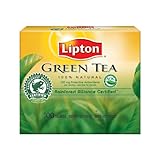Colon polyps are fleshy growths that occur on the inside (the lining) of the large intestine, also known as the colon. An estimated 50% of people over the age of 60 will harbor at least one polyp. When certain types of polyps grow large enough, they can become cancerous, leading to a type of cancer called colon cancer. Once a polyp reaches two centimetres or approximately one inch in size, the cancer risk is in excess of 20%. Out of the number of cancer deaths in the US alone, colon cancer comes in second place. The type of polyps that become cancerous are called adenomatous polyps or adenomas which accounts for approximately 75% of all colon polyps. Therefore, it’s important that during a cancer screening, when presence of colon polyps are found, it be removed before they actually become a full bloom colon cancer disease. The American Cancer Society has set cancer screening guidelines to minimize the risk of colon cancer by detecting and removing polyps.
Starting at the age of 40, everyone should have a stool specimen tested for occult blood (blood that cannot be seen with the naked eye) every year. This is recommended because it is known that when polyps become large they can bleed into the intestine where the blood mixes with the stool. Thus, an early warning sign for colon polyps could be the presence of occult blood in the stool.
Starting at the age of 50, everyone should have a flexible sigmoidoscopy every 3-5 years. A flexible sigmoidoscope is a two and one-half foot tube half an inch in diameter with a light on the end that can be inserted through the anus for inspecting the inside of approximately one-third of the colon’s total length.
If adenomatous polyps are detected with sigmoidoscopy, then a full colonoscopy with a longer tube (four to five feet) would be used to inspect the entire length of the colon. During a colonoscopy, any polyp can be removed and sent for an evaluation under the microscope to determine if it too is an adenomatous polyp, a cancerous type of polyp.
Many doctors in the US are recommending screening colonoscopies rather than flexible sigmoidoscopies for healthy subjects with an average risk for developing colon cancer. Colonoscopies are recommended beginning at the age of 50 and thereafter every 7-10 years if no colon polyps or cancers are found. The rationale for this recommendation is: 1) Colonoscopy examines the entire colon while flexible sigmoidoscopy only examines the rectum and the colon adjacent to the rectum, 2) approximately 50% of colon polyps (and colon cancers) are found in the upper colon and, therefore, are beyond the reach of sigmoidoscopes and would be missed by flexible sigmoidoscopy, and 3) the National Polyp Study, a large, scientific study, has shown that colonoscopy with removal of all colon polyps reduces cancer deaths from colon cancer.
Prevention and Natural Cures for Colon Polyps
 For cancer prevention and natural cure of colon polyps, there are dietary recommendations that can be made. Certain cruciferous health foods i.e. vegetables such as broccoli and cauliflower protect against colon cancer. Also there are certain health vitamins that protects against colon cancer, namely health vitamins C and E. D health vitamins is also a natural remedy for continued colon health which can be found in many natural foods. The sun is the most natural form of D health vitamins though this can also be taken in the form of daily capsule health supplements.
For cancer prevention and natural cure of colon polyps, there are dietary recommendations that can be made. Certain cruciferous health foods i.e. vegetables such as broccoli and cauliflower protect against colon cancer. Also there are certain health vitamins that protects against colon cancer, namely health vitamins C and E. D health vitamins is also a natural remedy for continued colon health which can be found in many natural foods. The sun is the most natural form of D health vitamins though this can also be taken in the form of daily capsule health supplements.
Calcium can also be taken in as a health supplement form in an effort to improve colon health in general. Many people find it difficult to drink milk products because of lactose intolerance. In addition to being a natural remedy for colon problems, calcium is also essential for strong bones, which helps to prevent osteoporosis later in life.
Another way to prevent colon polyps is by doing colon cleansing once a year. This natural remedy can be done with an easy three day liquid fast. Use natural foods and turn them into fresh juice drinks to instigate the decomposition of damaged tissue and deposits in the colon.
There are also some effective herbal remedies for the natural treatment of polyps and basically the overall colon health including:
Garlic as a health food has become something of a wonder herbal remedy in recent years as more and more people are recognizing the positive benefits of adding this natural food to their diet. Garlic as a health food helps reduce the chances of developing pre-cancerous polyps in the colon. It is also believed that people who eat garlic on a regular basis or those who take garlic health supplements are less likely to develop colon cancer.
Another herbal remedy that has become a focal point for those looking for an alternative medicine is green tea. In terms of colon health, green tea drink health supplement is believed to help reduce a person’s cancer risk for developing colon cancer.
Recent studies have shown that consuming grape seed extract can actually slow the progression of colon cancer cells. Adding this natural food to the daily diet can be worthwhile especially for someone with a family history of colon cancer.
Another herbal remedy providing to be an ally in the fight against colon cancer is turmeric herb. Taking health supplements that contains turmeric can help reduce the risk of polyps adhering to the wall of the colon.
Ginger as a health food is another spice proven to be effective in continued health in the colon. Adding this health food to the diet as a spice can help in the colon cancer prevention. Although it can be taken as capsule health supplements, this health food is much better tasting and easier to absorb when added as an ingredient during cooking.











